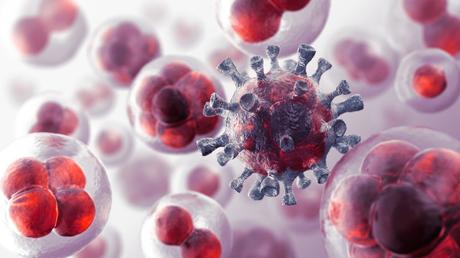
Press briefings on an unpublished Women's Health Initiative (WHI) report suggest that eating less fat improves a woman's chance of surviving breast cancer. A more critical evaluation of the study, however, suggests we need to question the significance of the findings.
The Women's Health Initiative (WHI) trial initially started in 1993, randomly assigning 48,000 women to a standard diet with at least 32% of calories coming from fat, or a "dietary intervention" group encouraged to reduce fat to 20% of calories (they actually reduced it to 25% on average) and to increase fruits and vegetables to at least 5 servings per day and whole grains to at least 6 servings per day.
The initial publication of this massive trial, in 2006, showed no difference in the primary outcome of breast cancer rates at 8.5 years.
The new report of the WHI study, which has yet to be published, is reported as showing a reduction in breast cancer deaths by 20%. Importantly, this is a relative risk reduction, and the absolute reduction is not provided. This details matters in how we interpret the data, yet we will have to wait to see the report, once issued.
As an example of the reason this matters, consider the results published from the same WHI study at 11.5 years of follow up; investigators reported a 22% reduction in mortality after breast cancer diagnosis. This equated to a mortality difference, in absolute terms of 1.1% vs. 0.9%.
That's right. The 22% relative reduction was an absolute reduction of just 0.2% over 11.5 years. Furthermore, the risk of dying specifically from breast cancer was 0.4% vs 0.3%. As you can see, putting things into perspective with absolute risk reduction is crucial to understanding the true impact of an intervention, especially when the study leaves many other questions unanswered.
For instance, a crucial (and problematic) element of the WHI trial design was described in the 2006 publication.
The intervention group received an intensive behavioral modification program that consisted of 18 group sessions in the first year and quarterly maintenance sessions thereafter. Each group had 8 to 15 women and was led by a specially trained and certified nutritionist...Comparison group participants received a copy of Nutrition and Your Health: Dietary Guidelines for Americans
In other words, the intervention group had regular group support and coaching while the control group got a book. If that isn't a set up for introducing an intervention bias, I don't know what is. Unfortunately, this design flaw clouds any result from the trial as we can't be sure whether any outcome difference was due to the dietary intervention or simply due to the increased personalized attention to health.
The authors promote the study as "the first randomized clinical trial evidence that a dietary change can reduce a postmenopausal woman's risk of dying from breast cancer." While on the surface that may be true, we are still left wondering, how did the two diets differ during the 20 years of follow up? Did the quality of fats and carbohydrates differ? For instance, did the higher fat group rely on industrial seed oils to add extra fat? Or were they eating more natural fats? Did the higher fat group eat more refined grains and carbohydrates since they were not encouraged to eat fruits and vegetables? Since the lower fat group had counselling sessions, did they also improve other healthy behaviors? Any of these examples could potentially explain a very small difference in cancer mortality.
In addition, the study group reportedly lost 3% more body weight than the control group. That small reduction may also explain the small difference in mortality. For instance, one report stated that the mortality benefit was more pronounced in those who were metabolically unhealthy to begin with. Thus, the difference in weight loss could potentially account for the difference in outcomes.
Some of the quotes in response to the report are "Patients are eager for things they can do" to improve their outcomes with breast cancer. And "What we eat matters." While these quotes are true, it remains to be seen that this study adequately addresses them with a specific recommendation.
It should not be a surprise that reducing refined grains and sugars and focusing on whole foods should improve overall health, metabolic disease and probably even cancer outcomes. However, this report appears to have too many holes to impact our specific dietary recommendations. Once again, we have to be sure the strength of the recommendation is matched by the strength of the evidence. To learn more about what we know and what we don't know about diet and its impact on cancer, see our detailed guide on this subject below.
Thanks for reading,
Bret Scher, MD, FACC


